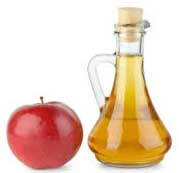A tea made from lavender has many uses with one of the foremost being it’s ability to have a calming effect on a person’s mind and body. To that end, lavender can promote a sense of well-being and alleviate stress. It is also useful for dealing with various gastrointestinal issues such as upset stomachs and and flatulence.
Because it is a strong antiseptic, lavender tea, when applied topically, can help heal cuts, wounds and sores. It can also be used to mitigate bad breath.
Lavender oil has a well documented history of effectively treating burns and scalds. It’s pain relieving properties, combined with its antibacterial and antiseptic properties make it an effective wound treatment that stimulates the cells of a wound to regenerate more quickly, and prevent scarring. It is useful for treating headaches, insomnia, fever blisters, acne, anxiety, stress, and depression. Additional uses include:
• Apply lavender oil to insect bites, including bee and wasp stings, to neutralize pain and swelling almost immediately
Mix with aloe vera to treat sunburns
• A cool compress on the forehead with lavender eases sinus headaches
• Add it to shampoos to prevent dandruff and reduce hair loss
• Lavender in your linen closet repels moths
• Add a few drops to the rinse water to give your laundry a good smell
• It is a great room deodorizer; add to potpourri
• A drop or two on a pillow or pajamas will encourage sleep
• Lavender in bath water will help relax children for bedtime
• Place leaves and flowers in sachets for your underwear drawer
• It can be used to treat urinary tract, bladder, and yeast infections
• Lavender is an effective at-home treatment for athlete’s foot and other fungal infections
• It eases coughs and colds, and reduces fever • Lavender can be used to treat animals for fleas
• It is an effective treatment for head lice • Lavender stimulates growth of healthy new cells
• Lavender is useful in easing motion sickness and high blood pressure
• A couple drops on a cotton ball in the bottom of a trash can or diaper pail helps neutralize odors


